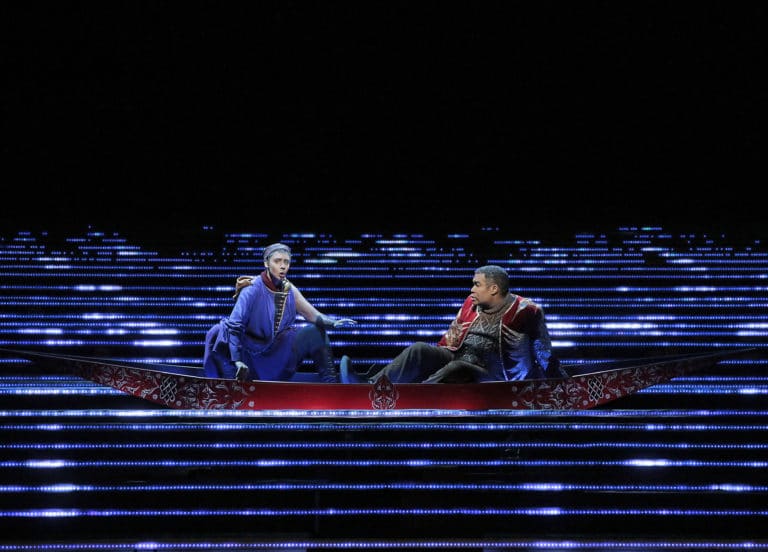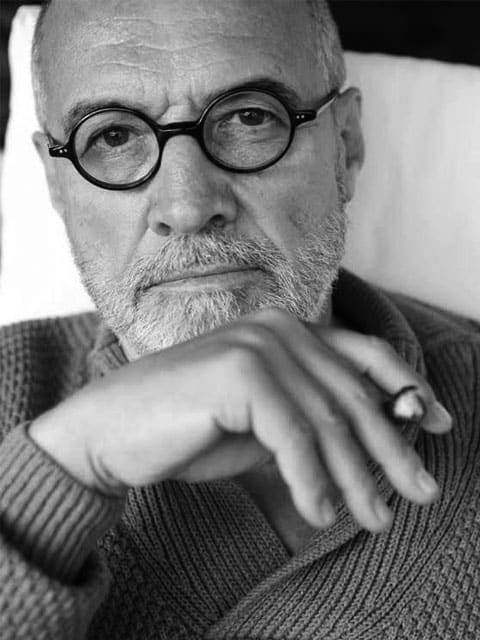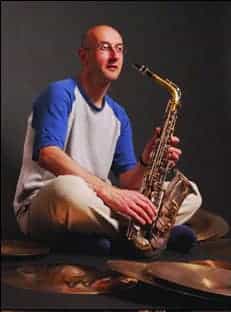L’amour de loin at the Met: first review
mainOn ZealNYC, first out of the traps:
Have you ever seen a really, really cute puppy sitting in a tiny, tiny crate? All full of trapped youthful life, love, joy and potential? All ready to just pop out? To be just, really fantastic?
And have you ever watched this fantastic joyful trapped puppy in this tiny, tiny crate for two and a half hours?
Well I took in Robert Lepage’s new Metropolitan Opera production of Kaija Saariaho’s haunting L’Amour de Loin tonight….

Photo: Ken Howard/Metropolitan Opera
More here.
And more reviews to follow.
UPDATE: The parish rag.
And New York Classical Review.
Our review pair found it ‘glorious’.





Because perhaps the parish rag will spell the director’s name correctly?
… and “Distant Love,” surely. Can’t anyone there speak French?
It’s not “Lapage” but “Lepage” !
Or perhaps because the parish rag will actually write a review of the opera? Sorry. This is not a review of the opera or, really, its performance either.
To Herrera:
1) What would be wrong with the idea (which is nevertheless still to be proven) that “NYT wants to encourage the Met to do more opera that is, at once, contemporary, composed by a woman, conducted by a woman”?
Do you sincerely believe that there is no problem with the little representativity of women in the music world, especially composers and conductors?
This sounds like a sexist comment which should not have its place here, and as a matter of fact, anywhere in today’s world.
2) Saariaho wanted to write her first opera – which may have been the only one – about an ‘eternal theme’ (the mystery of love)’, she choose a story well known to medieval literature scholars for its formal and emotional exceptional balance. When conceiving together the libretto, Saariaho and Maalouf explicitly discussed such themes as the fear of the other and migrations, and did treat them in a subtle manner rather than in a trivial fashion.
Saariaho’s second opera, Adriana Mater is yet about another ‘eternal theme’ (motherhood), set in a contemporary context (the balkans wars), and her oratorio La Passion de Simone is about the life and work of a major philosopher of the 20th century, Simone Weil, who has been involved in many of the important political fights of the time.
Saariaho has worked with texts of all sorts of times and places and in many languages (including persian).
In any case, composers are free to choose what they want to write music about. This is the freedom of the artist.
‘Tristan und Isolde’ and ‘Pelléas et Mélisande’ have not exhausted the theme of love, and there will be always space for daring composers who attempt to approach it to offer us new musical visions of it.
Since the parish rag no longer allows comments on its classical music reviews, I have no venue except here to complain about their coverage:
1) Of course the NYT is going to give a glowing (ha ha) review of this opera and production, because the NYT wants to encourage the Met to do more opera that is, at once, contemporary, composed by a woman, conducted by a woman.
2) Try as it may to make this opera resonate with contemporary issues (refugees, immigrants, love and fear of the Other, Austria, Americans, Trump and his wall, etc, etc), the sad reality is that this opera is about a Medieval French Prince and Princess, ok?! It may be contemporary music, but it sure ain’t contemporary subject matter. It ain’t Death of Klinghoffer or Nixon in China, dear NYT and Met, it is about, let me repeat: 12th Century Troubadour Prince and Princess in Southern France, 2 dead white European heterosexual royalty longing for each other.
Oy vey.
Because nothing has happened since the 12th century to merit an opera.
Because no other composer — not Wagner in Tristan und Isolde, not Debussy in Pelléas et Mélisande — has yet written an opera about unrequited Love and Death between a princess and a prince in Medieval Europe.
Bam!
To Herrera:
1) What would be wrong with the idea (which is nevertheless still to be proven) that “NYT wants to encourage the Met to do more opera that is, at once, contemporary, composed by a woman, conducted by a woman”?
Do you sincerely believe that there is no problem with the little representativity of women in the music world, especially composers and conductors?
This sounds like a sexist comment which should not have its place here, and as a matter of fact, anywhere in today’s world.
2) Saariaho wanted to write her first opera – which may have been the only one – about an ‘eternal theme’ (the mystery of love)’, she choose a story well known to medieval literature scholars for its formal and emotional exceptional balance. When conceiving together the libretto, Saariaho and Maalouf explicitly discussed such themes as the fear of the other and migrations, and did treat them in a subtle manner rather than in a trivial fashion.
Saariaho’s second opera, Adriana Mater is yet about another ‘eternal theme’ (motherhood), set in a contemporary context (the balkans wars), and her oratorio La Passion de Simone is about the life and work of a major philosopher of the 20th century, Simone Weil, who has been involved in many of the important political fights of the time.
Saariaho has worked with texts of all sorts of times and places and in many languages (including persian).
In any case, composers are free to choose what they want to write music about. This is the freedom of the artist.
‘Tristan ind Isolde’ and ‘Pelléas et Mélisande’ have not exhausted the theme of love, and there will be always space for daring composers who attempt to approach it to offer us new musical visions of it.
Listening to some fragments, the music is a modernist version of impressionism, and quite attractive. Why not give space to the effect of the music, and thus: the atmosphere and psychology of the subject, instead of using the work to ‘produce’ an ‘interesting’ concept on the stage?
Is Saariaho’s work, in general, music or sonic art? It seems to include bits from both worlds: musical fragments like broken splinters floating on a sonic surface:
https://www.youtube.com/watch?v=wZC5cvfn8iw
Gasp! positivity!
She has produced much lovely work, hoping this enhances her public profile.
I would rather listen to this woman’s dark, somber musings, than to the pretentious, fanatic, politically-driven feminist emptiness of Olga Neuwirth:
https://www.youtube.com/watch?v=FmWslEUpf9s
(There is an octave at 1:58 but that must be a mistake.)
So our choices are Kaija Saariaho or Olga Neuwirth? If we don’t like Virginia Woolf there’s always Edith Wharton?
Since female composers are still a precarious species, one should encourage their ambitions, but not judge the results with a gender amplifying glass – rejecting or emulating the results for their being written by a woman. I find Saariaho a good example for what Neuwirth should be doing, because the first does not put her gender in the forefront, she does not need it. Both ladies are poles apart and in between there is the range of gender-informed wrapping paper.
To Herrera:
1) What would be wrong with the idea (which is nevertheless still to be proven) that “NYT wants to encourage the Met to do more opera that is, at once, contemporary, composed by a woman, conducted by a woman”?
Do you sincerely believe that there is no problem with the little representativity of women in the music world, especially composers and conductors?
This sounds like a sexist comment which should not have its place here, and as a matter of fact, anywhere in today’s world.
2) Saariaho wanted to write her first opera – which may have been the only one – about an ‘eternal theme’ (the mystery of love)’, she choose a story well known to medieval literature scholars for its formal and emotional exceptional balance. When conceiving together the libretto, Saariaho and Maalouf explicitly discussed such themes as the fear of the other and migrations, and did treat them in a subtle manner rather than in a trivial fashion.
Saariaho’s second opera, Adriana Mater is yet about another ‘eternal theme’ (motherhood), set in a contemporary context (the balkans wars), and her oratorio La Passion de Simone is about the life and work of a major philosopher of the 20th century, Simone Weil, who has been involved in many of the important political fights of the time.
Saariaho has worked with texts of all sorts of times and places and in many languages (including persian).
In any case, composers are free to choose what they want to write music about. This is the freedom of the artist.
‘Tristan ind Isolde’ and ‘Pelléas et Mélisande’ have not exhausted the theme of love, and there will be always space for daring composers who attempt to approach it to offer us new musical visions of it.
This has been a Hot Take®.
some of the best parts in Opera are for women….. what is the problem?
anyway if you feel you are under represented putting on this annoying, dull opera is no way forward
definitely a case of the Emperor’s clothes –
yeah – what’s all the gushing about? Pretty stolid performance, especially from a Eric Owens – of a rather insignificant piece. If it had been “all that jazz” MET wouldn’t have waited 16 years to produce. Production light show was interesting; cherry picker was annoying.
Thea Musgrave, Judith Weir, others deserved first dibs at Met.
Yup! Though I didn’t find the machine annoying – just wished it less ponderous. Surely modern technology could have porduced security with less bulk.